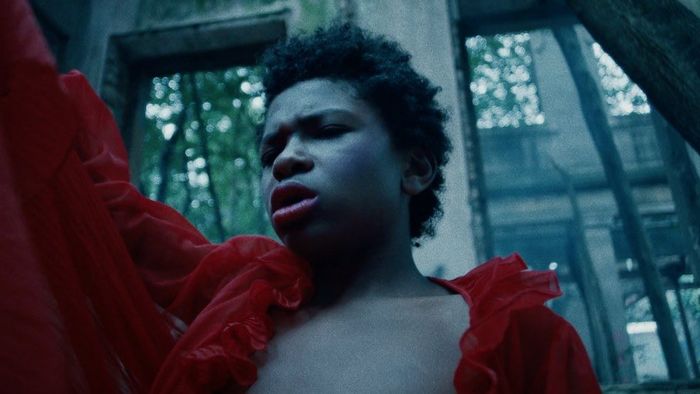Studio 60: The Funniest Show You’ve Never Heard Of
Rachael Kennedy reviews Aaron Sorkin’s Studio 60 on the Sunset Strip, the little known comedy show about a comedy show which became a lockdown staple.
Studio 60 on the Sunset Strip – heard of it? Me neither, until England’s second lockdown descended and I needed a way to get myself out of reality. Studio 60 ran on NBC in 2006-7: unusually for anything created by screenwriter Aaron Sorkin (that old chestnut), the show’s audience numbers were low, low enough to make it axe-able after a single season.
Despite poor numbers and some less positive reviews, my love of Sorkin’s work led me to investigate this suitably escapist series. Watching one episode, I was keen to see another. The show then turned into a positive and meaningful nightcap to close off a day filled with (I assume, from the joy I was getting from it) subconscious worry about what was happening and going to happen in the world beyond my house.
Studio 60 follows two best-friend TV crew members, Matt (Matthew Perry) and Danny (Bradley Whitford), as they take over a flagging late-night live show. It does so with wit, integrity and a sensitive touch.
“As a musical performer, I enjoyed noting how the actors dealt with issues of timing, relationship of script to performance, live performance, and scripted versus ad-libbed performance.”
The show was unabashedly escapist to me, someone who’s long been attracted to the camaraderie and — in the best of cases — worthwhile nature of TV making. Matt and Danny’s writers’ room sits backstage and hosts discussions about the comparative humour of sketches. Matt lives, to all intents and purposes, in his on-site office, but is never alone in the building. Danny oversees the live taping from the director’s chair, and Cal (Timothy Busfield), the control room director, works with his team in a thoroughly competent but collegial way. The final touch in this dream-like environment is the presence of a female TV network president (Amanda Peet) who is funny, ingenious and kind.
But beyond the diversion for which I’d turned up, Studio 60 wove together several interesting threads. Firstly, there was the show’s double-layer featuring of performance professionals. As a musical performer, I enjoyed noting how the show’s and show-within-the-show’s actors dealt with issues of timing, relationship of script to performance, live performance, and scripted versus ad-libbed performance.
(Of course, it would have been possible for me to make these observations elsewhere. However, Studio 60’s focus on processes of creation, rehearsal, and performance in relation to a TV show made the impetus to do this particularly easy to take up.)
There was also the show’s clear issue taken with the politics of the US television network system. Despite itself being aired by a network, Studio 60 doesn’t hesitate to set up tense relationships between executives working at the fictional NBS and between these executives and show staff. It also does not shy away from showing the lengths to which a network can go to generate profit, often to the peril of artistic concerns, and the varying attention paid to ratings by network and show staff. This was particularly interesting to me because of a then-recent discovery that such disputes are not, in reality, uncommon.
“The show never ceased to provide me with comedy I found actually funny: wit, slapstick, or physical gags alike.”
And then there were the different types of humour which made Studio 60 entertaining to me. Whether it was Timothy Busfield’s consistent and very much literal breaking of furniture, Matthew Perry’s castigation of an assistant for eating “prop food” (read “veggie burger”), or Perry being told by a new cast member, Simon (D. L. Hughley), that his writing reads “as though he’s trying to get a second date”, the show never ceased to provide me with comedy I found actually funny: wit, slapstick, or physical gags alike.
In summary, the world of Studio 60 on the Sunset Strip has everything that the Covid lockdown did not: it has friends, it has in-person performance, it has impromptu interactions and it has decisions uninfluenced by pandemic concerns. Studio 60 is a show I would definitely recommend to a friend. It’s on Amazon Prime and on DVD.
 News / Cambridge academics stand out in King’s 2026 Honours List2 January 2026
News / Cambridge academics stand out in King’s 2026 Honours List2 January 2026 Comment / Plastic pubs: the problem with Cambridge alehouses 5 January 2026
Comment / Plastic pubs: the problem with Cambridge alehouses 5 January 2026 News / Cambridge businesses concerned infrastructure delays will hurt growth5 January 2026
News / Cambridge businesses concerned infrastructure delays will hurt growth5 January 2026 News / AstraZeneca sues for £32 million over faulty construction at Cambridge Campus31 December 2025
News / AstraZeneca sues for £32 million over faulty construction at Cambridge Campus31 December 2025 Interviews / You don’t need to peak at Cambridge, says Robin Harding31 December 2025
Interviews / You don’t need to peak at Cambridge, says Robin Harding31 December 2025









